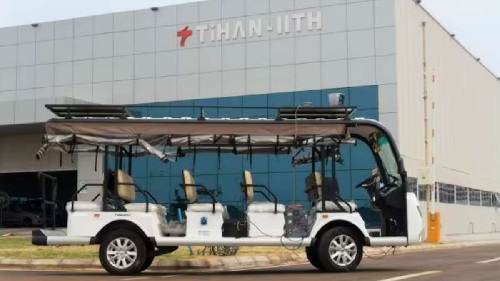In a major step for India’s push toward smart mobility, the Indian Institute of Technology Hyderabad (IIT-H) has launched a fleet of AI-powered driverless buses on its campus. Developed by the institute’s Technology Innovation Hub on Autonomous Navigation (TiHAN), this marks the country’s first self-driving experiment in a real-world, albeit controlled, environment. The fully autonomous electric buses are now in daily service, transporting students and faculty across the campus.
The project is a significant milestone as the buses have achieved Technology Readiness Level 9 (TRL-9), which means the technology has been proven to be functional and reliable under real-world conditions. According to the institute, the vehicles, which come in a six-seater and a fourteen-seater variant, have already carried more than 10,000 passengers with a high satisfaction rate.
A Testbed for Indian Conditions
The initiative is not just about a bus service; it’s a demonstration of India’s capability in developing indigenous autonomous solutions tailored to the unique challenges of Indian roads. The TiHAN team has also built India’s first autonomous navigation testbed, a facility that replicates the unpredictable and chaotic traffic conditions of the country. This testbed allows researchers and industry partners to rigorously test and validate self-driving systems before they can be considered for public deployment.
The buses are equipped with a suite of advanced features, including Autonomous Emergency Braking (AEB) and Adaptive Cruise Control (ACC), allowing them to detect obstacles, pedestrians, and other vehicles while maintaining a safe distance. While the current operations are confined to the campus, the project is seen as a crucial first step toward the future of public transportation in India. Further rollout will require extensive safety testing and regulatory approvals to ensure the technology is ready for the complexities of public roads.







